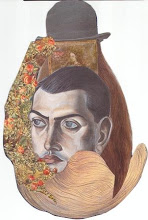Salman Rushdie is one of our most agile and original fantasists. In a time when the popular imagination seems evermore stranded in ruts dug by each medium’s greatest successes Rushdie continues his pattern of building his fiction from historical influences, particularly those of the Arabic/Persian/Hindu east as he has entire career. Even as his style has become less dense and more accessible his subject matter remains free among the winds of time. The powers, structure, and assumptions he invokes are refreshingly alien to a world mired in the formulas and assumptions of comic books and young adult novels.
His latest novel, Two Years, Eight Months and Twenty Eight Nights (which I will abbreviate as 2-8-28), takes place largely in current time and contains the convenience of cultural signposts and pop culture reference but the meat of the story involves the imposition of ancient stories upon current conditions.
In his memoir, Joseph Anton, Rushdie wrote of his university education in arabic history and philosophy. This included a lengthy digression about the Arabic philosophers Ibn Rushd and Al-Ghazali. Rushd, who sought to find the meeting point of religion and reason, and Al Ghazali who sought to banish reason as iniquitous to devotion. For 2-8-28 Rushdie uses these philosophers as the opposing poles of his plot. Ghazali working from beyond the grave to drive mankind toward god through fear and Rushd’s unwary descendants caught up as mankind’s only hope of rescue.
The magical conceit of the book is that our world exists parallel to that of the Jinn, capricious spirit creatures who have delighted throughout history in making mischief for mankind. They are unconcerned with the suffering or harm they cause, rather they are addicted to their own remorseless amusement. Meanwhile, the door between our world and theirs has re-opened after centuries.
2-8-28 is a freewheeling and fast-moving story that involves a large number of characters and scenarios separated by time, space, and planes of reality. For this reason it can become bewildering though compared to Rushdie’s early works like Children of Midnight or The Satanic Verses it is lithe and direct, at least in its individual scenes. It would be understandable to lament the loss of the more densely packed and expansive Rushdie of thirty-odd years ago. But there are also more recent books like The Enchantress of Florence which are as elegant and direct as a song. Rushdie is a writer still clearly capable of wonders.
This new work is perhaps more slight. It takes in a great panoramic sweep of time and place and is exciting in its occurrences and ideas but there is a sense that it misses out on the depths in the story where the real beauty might lie. The human characters (more accurately the MOSTLY-human characters) of the book feel a bit short-sold. They are the persons on whom the conflicts hinge and they have compelling earthly problems. I have to admit the Indian-American aspiring comic-book artist whose creations come to life seemed like exactly the sort of figure I would like to follow around and see his perspective of a world in chaos. Same with the vicious young woman who dates married millionaires and then finds out she has the power to kill them with fire from her eyes.
If Rushdie’s style leads to a characteristic frustration it’s the abandonment of a compelling idea in favor of an over-all profusion of fantastical concepts. It was the same way with the conclave of telepathic children in Children of Midnight, a concept worthy of its own novel, abandoned almost in the same chapter it was introduced.
But perhaps I am now lamenting what I at the opening praised. Rushdie writes against our prevailing structures and formulae. Which is perhaps not uncommon in literary fiction. But that genre is infamously allergic to whimsy which is elemental in Rushdie’s work. Still it is difficult to escape the feeling that the bulk of the story was given to the wrong set of characters. The nearly omnipotent Jinn, warring on behalf of the posthumous philosophers were not for an instant as interesting as the people whose lives they troubled.

No comments:
Post a Comment